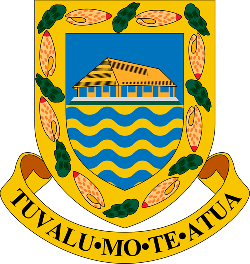T
- Technical Potential
-
The amount by which it is possible to reduce GHG emissions or improve energy efficiency by using a technology or practice in all applications in which it could technically be adopted, without consideration of its costs or practical feasibility.
- TechnologicalÊ
-
Relating to orÊusingÊtechnology:
- Technology and Hazards
-
A hazard resulting from the use of technology for manufacturing, mining, processing, transport or storage.
- Technology transfer
-
A broad set of processes covering the flows of know-how, experience and equipment for mitigating and adapting to climate change among different stakeholders.
- The Asia Foundation/Office for U.S. Foreign Disaster Assistance (TAF/OFDA)
-
The Asia Foundation is a nonprofit international development organization committed to improving lives across Asia. Its programs address critical issues such as governance and law, economic development, women's empowerment, environment, and regional cooperation.OFDA is the USAID office responsible for leading and coordinating the U.S. GovernmentÕs response to overseas disasters.
- Thermocline
-
The region in the worldÕs ocean, typically at a depth of 1 km, where temperature decreases rapidly with depth and which marks the boundary between the surface and deep ocean.
- Thermohaline circulation
-
Large-scale density-driven circulation in the oceans, driven by differences in temperature and salinity.
- These are not organisations or projectsAdditional specific information needed to provide description (e.g. country or jurisdiction) Project/Organisation Name
-
Description
- TIDE (ISDR)
-
The periodic rising and falling of the earth's oceans and atmosphere resulting from the gravitational forces of the moon and sun acting upon the rotating earth. This disturbance actually propagates as a wave through the atmosphere and along the surface of the waters of the earth.
- TIDE TABLE (ISDR)
-
Annual tabulations of daily predictions of the times and heights of high and low water at various places. Such tables are constructed from astronomical data and the results of harmonic analysis of previous observations at the desired point.
- Tourism
-
The commercial organization and operation of holidays and visits to places of interest:
- Traditional Knowledge
-
Long-standing traditions and practices of regional, indigenous, or local communities.
- Training and Tools
-
Teaching defined skills.
- Transport
-
A system or means of conveying people or goods from place to place
- Tropical Cyclone Committee for the South Pacific (and South East Indian Ocean)
-
One of the 5 regional bodies of the WMO's Weather and Disaster Risk Reduction Services Department Tropical Cyclone Programme. It shares responsibilities for cyclone warning services and their infrastructures throughout the South Pacific Region.
- Tropical Cyclone Warning Centre
-
Any regional centre participating in the WMO Tropical Cyclone Programme, a programme tasked to establish national and regionally coordinated systems to ensure that the loss of life and damage caused by tropical cyclones are reduced to a minimum.
- Troposphere
-
The lowest part of the atmosphere from the surface to about 10 km in altitude in mid-latitudes (ranging from about 9 km in high latitudes to about 16 km in the tropics on average) where clouds and ÒweatherÓ phenomena occur. The troposphere is defined as the region where temperatures generally decrease with height.
- TROPOSPHERE (ISDR)
-
Lowermost layer of the atmosphere in which air temperature falls steadily with increasing altitude. All weather occurs in the troposphere.
- Tsunami
-
A seismic sea wave generated by displacement of the seafloor by a volcano, earthquake and or landslide, which causes the formation of a small group of water waves with a wavelength equal to the water depth at the point of origin that can be devastating when they reach low-lying coastal areas.
- Tsunami Awareness Kit
-
A tailored collection of resources to help Pacific Island countries prepare for the deadly and destructive potential of tsunamis.
